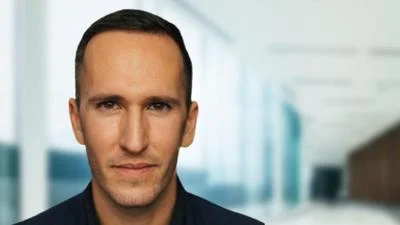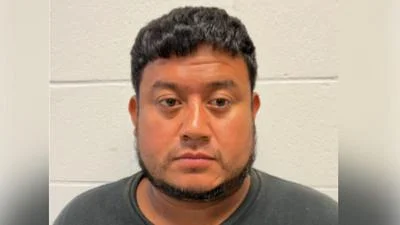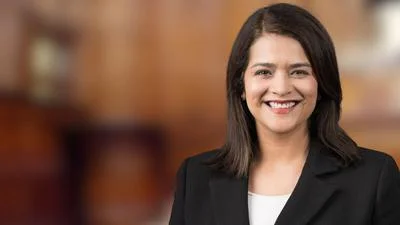(Top left to right) Kiara, Gerardo Valdivia Sr., Jerry Jr. & Ethan. (Bottom left to right) Adan, Teresa and Kathryn. | Gerardo Valdivia Sr.
(Top left to right) Kiara, Gerardo Valdivia Sr., Jerry Jr. & Ethan. (Bottom left to right) Adan, Teresa and Kathryn. | Gerardo Valdivia Sr.
Gerardo Valdivia Sr.’s family is directly affected by the General Assembly and Governor’s Office's failure to fund the Invest In Kids tax scholarship program.
Of his four children, three take advantage of the scholarship program. The youngest is unable to receive the benefit as she is in pre-K.
The scholarship program has helped over 32,000 lower-income children – many living in communities with failed public schools – since its inception in 2017.
The story of the Valdivia family is like that of 9,348 families in Illinois who will have to figure out how to replace the scholarship benefit, whether through personal funding or sending children to public schools.
“I feel angry about it. I feel disappointed. I feel let down,” Valdivia said.
“It's like these people – and when I say these people, people we're trusting when they run. The office, it benefits all communities, not just their communities, not just the wealthy communities.”
“We expect them to help the kids that are in neighborhoods where there's gang infestation. They're probably not in the safest environment. And when you have Governor Pritzker saying that he's not going to support the investment here, it's a mixture of emotions between anger and like I said, I feel let down. I feel upset about it.”
“These are kids. We're not talking about funding parents and their welfare checks or anything like that. We're asking about helping with a program that's helping direct people, especially kids that are in the neighborhood, like the ones my kids are unfortunate to grow up in that I was unfortunate to grow up in as well.”
Valdivia said if his family loses the scholarship he’ll do whatever he can to keep his kids in private schools.
“I want to stay nice and courteous and professional about things – but it is just luckily, my wife, she got her career and I have a job and I'm grateful for that. But there are families out there who don’t,” Valdivia told Chicago City Wire.
“And all this means for me is that either I have to pick up a second job because I'm not going to take my kids out of private education.”
“But what's going to happen if I take time away from my kids? Then I can't pay attention to my kids, as much as I should. My oldest my two oldest are teenagers now, you know, and like I said in the neighborhood that they're growing up in, they need the presence of a father. They need the presence of their mother. They're going to have a parent working two jobs and also making sure that they're not wandering off after school outside in the street. And that's like it's not just my family that every family, every family out there that's working hard to provide for their families.”
“And all they're asking is for a little bit of help to be able to send their kids to a Catholic school or a Lutheran school or a Jewish school. Whatever it is, you know, what's really sad about this. You don't see any other state in the country taking away these programs and I said it once, I'll say it again, Illinois can be the first state to lose this.”
Valdivia said he will not make his children endure Chicago Public Schools. He said his family has dealt with less-than-ideal classroom conditions in CPS schools in the past.
Valdivia himself went to CPS schools which he said are like “war zones” and where he was bullied for several years.
“My oldest son was in the public school of the third grade, and there were 33 kids in this classroom and it was a dual grade classroom. So he did kindergarten, first grade, and then second and third grade. And it was the same classroom, you know, twice for those all for all four, all four years,” Valdivia said.
“I can't send my kids back there.”
He said that Gov. Pritzker – whose daughter Teddi Pritzker attended Francis W. Parker in Chicago – is out of touch with regular people.
“If Governor Pritzker feels like he doesn't need to fund or help the investing kid program, then send your own kids to public school. Have your grandkids go to a public school,” Valdivia said.
“Why is it that my kids have to be a statistic based on the neighborhood that we live in? Why should they have to not be able to go to a public or private school when there are clearly people out there that are trying to fund this program and donate it to a program that's going to keep them out of the streets, it's going to keep them out of that neighborhood, too.”
Pritzker, whose estimated net worth is $3.6 billion, would not have qualified for the Invest In Kids scholarship benefit.
Teddi’s alma mater, Francis W. Parker, costs nearly $39,000 to attend per year. 99% of its graduates go on to four-year universities after graduation.
It is one of the most selective private schools in the region.
Francis W. Parker’s student body registers a 0% hispanic population, only 7% black population and a 69% white population.
Meanwhile, Illinois’ black population comprises over 14% of the state, its hispanic population is 18% and the white population is nearly 70%.
Those numbers reflect Illinois demographics for black students.
Meanwhile, Hispanics are found to be over-represented and white under-represented among the number of Invest In Kids scholarship holders.
Of those currently awarded – 9,348 scholarships in total – 1,365 / 14% went to black students, 2,280 / 24% to Hispanic students and 4,392 / 46% went to white students.
Those facts about the racial makeup of the state and the scholarship holders did not faze one Invest in Kids' main opponents, the Illinois Education Association, which has placed ads on Facebook seeking to have funding removed from the school choice program.
In literature used to support its position against Invest In Kids the Illinois Education Association has argued “more white students are helped” by the scholarships.





 Alerts Sign-up
Alerts Sign-up